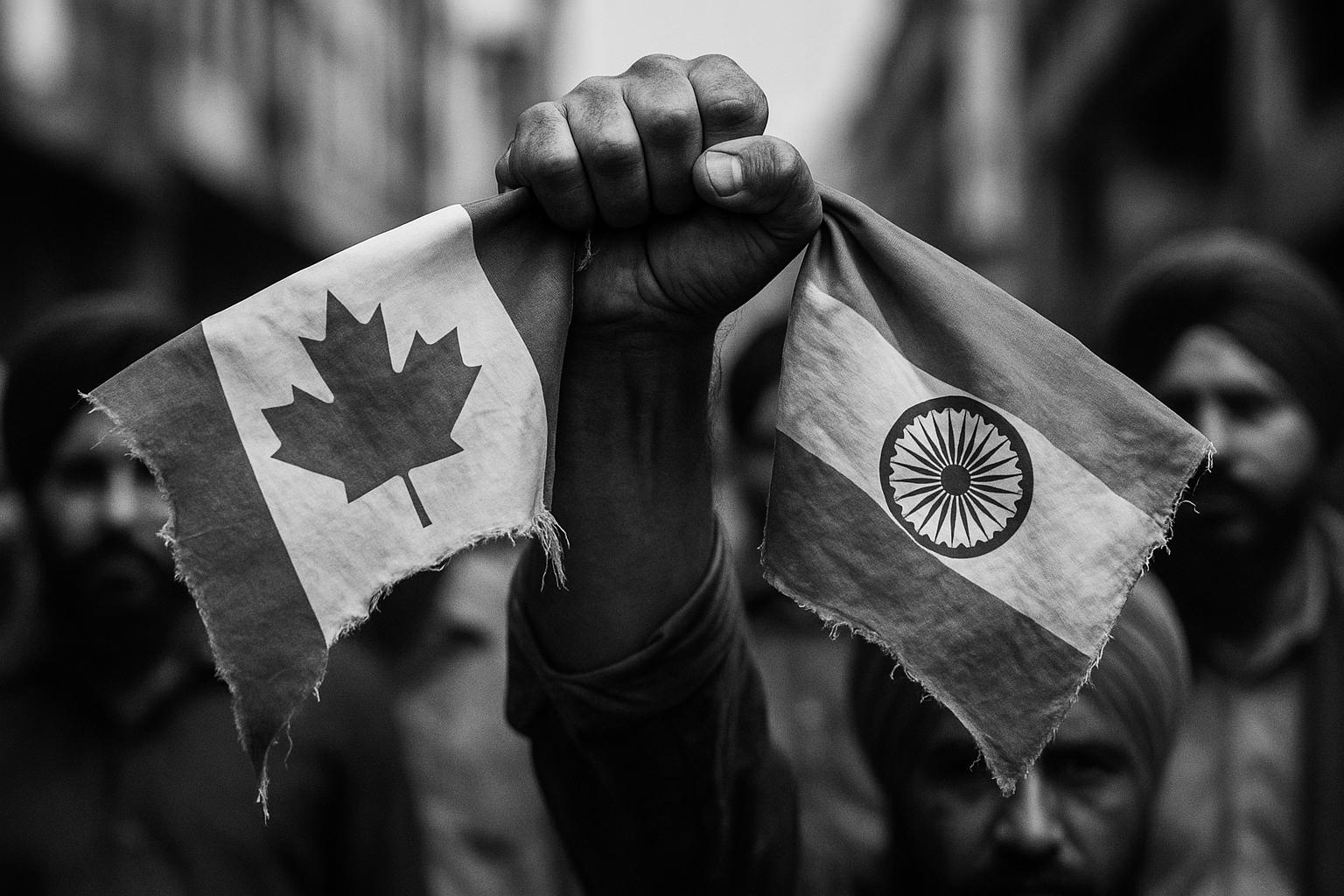In recent weeks, the Canadian Sikh community has expressed profound outrage following Prime Minister Mark Carney's invitation to Indian Prime Minister Narendra Modi to attend the upcoming G7 summit in Kananaskis. This invitation comes in the wake of escalating tensions stemming from the 2023 assassination of Hardeep Singh Nijjar, a prominent Sikh-Canadian activist linked to the global movement for an independent Sikh state, Khalistan. Reports suggest that agents of the Indian government orchestrated this brazen act, exacerbating already strained diplomatic relations between Canada and India.
Nijjar's assassination was particularly shocking due to its purported connection to the Indian government, an allegation that has been echoed by Canadian Prime Minister Justin Trudeau. He asserted that Indian officials were involved in the plot, a claim strongly denied by the Indian government, which has accused Canada of harbouring Sikh separatists. The political climate has been further complicated by recent indictments from the U.S. Department of Justice, which detailed direct communications linking Indian agents to plots targeting Sikh activists in both Canada and the United States.
In light of these developments, Carney's decision to include Modi in such an important international gathering has drawn heavy criticism from members of the Sikh community. Balpreet Singh, legal counsel for the World Sikh Organization of Canada, has been particularly vocal. He lamented that Carney's remarks, which focused on India's role in global supply chains, seem to sideline crucial human rights concerns that should underpin Canadian foreign policy. "It feels like a betrayal to the Canadian Sikh community," Singh noted, emphasising that any realignment in relations must be principled and contingent upon India acknowledging its actions.
Despite the evident discontent, Carney defended his choice during a recent press conference, stating that India occupies a critical position in global economic networks. His comments, however, have been received with scepticism. Critics argue that prioritising economic interests over human rights undermines Canada’s image as a champion of democracy and values rooted in rule of law. There are also concerns that failing to address international accusations against Modi’s government diminishes Canada's moral standing, especially following Trudeau's initial, more assertive stance against what he termed "external interference."
The invitation, announced just ahead of the anniversary of Nijjar's death, seems to contradict previous Canadian efforts to condemn foreign interference, as highlighted by the RCMP’s troubling investigation into India’s covert operations on Canadian soil. An October report by the RCMP identified credible threats to the Sikh community, citing actions orchestrated by agents of the Indian government. The expulsion of diplomats from both nations, a direct consequence of the escalating diplomatic crisis, underscores the deepening rift, with Canada taking a hard line against foreign interference and violence.
In contrast, Modi's acceptance of the G7 invitation has generated mixed reactions. While some view it as a chance for dialogue, others fear it legitimises a government that has been accused of serious human rights violations. Sikh leaders have called for Modi to be held accountable, insisting that his participation should only occur under the condition that he cooperates with ongoing investigations into Nijjar’s assassination and promises not to target Sikh activists in Canada.
The broader implications of this diplomatic realignment extend beyond the Sikh community. Canadian officials are faced with the challenge of balancing national security and human rights with international economic partnerships. As the G7 summit approaches, the critical questions loom: How will Carney reconcile these competing interests, and what will be the ramifications for the communities at stake?
Local politicians have echoed the concerns of the Sikh community, with some Liberal MPs expressing dissatisfaction with Carney’s handling of the situation. Maninder Sidhu, the new Minister of International Trade, acknowledged the division within the community while asserting the need for cooperation to navigate existing tensions.
The spotlight at the G7 summit will not only focus on international economic ties but also on the complex geopolitics entwined with Canada’s commitments to uphold human rights. As the Sikh community prepares to voice their concerns, the upcoming discussions will reveal much about Canada’s future diplomatic stance and how it intends to engage with a country increasingly accused of transnational repression.
📌 Reference Map:
- Paragraph 1 – [1], [2]
- Paragraph 2 – [1], [3], [4]
- Paragraph 3 – [1], [5], [6]
- Paragraph 4 – [1], [2], [4], [5]
- Paragraph 5 – [1], [3], [6]
- Paragraph 6 – [1], [2]
- Paragraph 7 – [2], [3]
- Paragraph 8 – [1], [5]
- Paragraph 9 – [4], [5]
Source: Noah Wire Services
